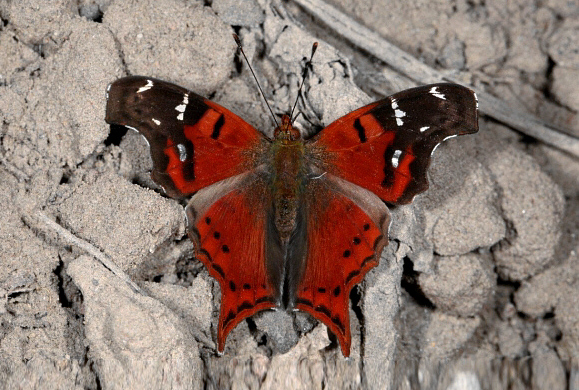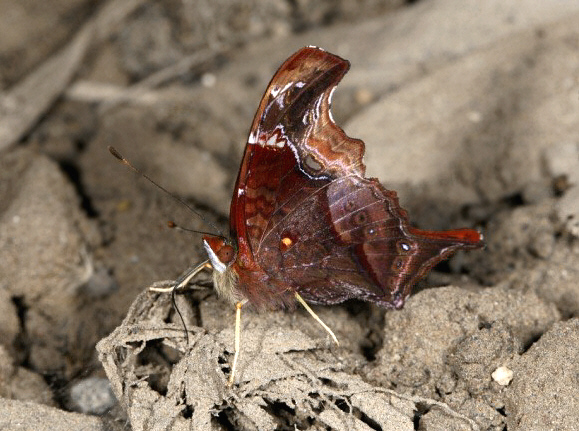
Introduction
The Nymphalinae includes many of the most well-known and beautiful Palaearctic butterflies such as the Red Admiral Vanessa atalanta, Painted Lady Vanessa cardui, Camberwell Beauty Nymphalis antiopa, Comma Polygonia c-album, and Peacock Inachis io.
Among the neotropical representatives are Colobura, Smyrna, Napeocles, Siproeta, Baeotus, Historis, Junonia, Anartia, and Hypanartia.
There are 14 Hypanartia species, all of which occur primarily in the subtropical climes of the Andean cloud forests and the Cordilleras of Central America.
Hypanartia fassli occurs in Colombia and Ecuador.

Habitats
This is cloudforest species, found at altitudes between about 1400-2400m.
Lifecycle
I have no information specific to fassli but the lifecycle is likely to be similar to that of Hypanartia cinderella as follows: The eggs are white. They are laid singly on leaves of Pilea (Urticaceae). The larva is black and lustrous. Its back is adorned with branched black spikes on the thoracic and tail segments, and white spikes on the middle segments. It lives solitarily within a tent of leaves, spun together with silk. It periodically emerges from the tent to feed. The chrysalis is formed within the larval tent, and is grayish, marked on the thorax with silver spots.
Adult behaviour
Males habitually visit runnels and seepages along roadsides, and the wet rocky edges of mountain streams. They flit nervously from spot to spot until they find a patch of ground rich in dissolved minerals, where they drink, while periodically fanning their wings. They will bask with wings fully outspread in hazy sunlight, misty, or overcast conditions.
